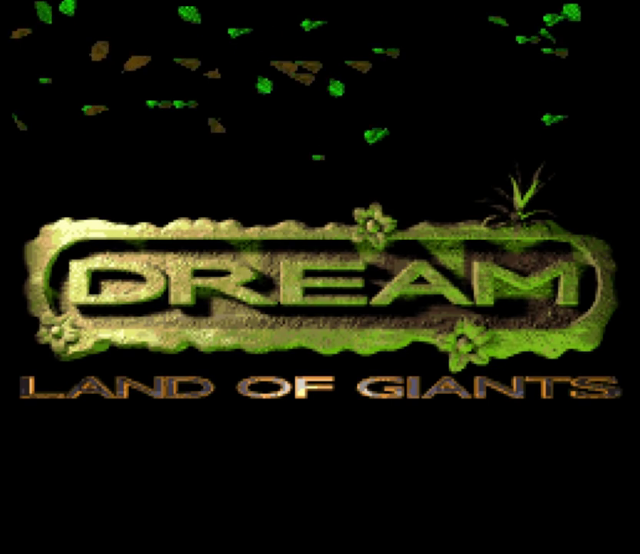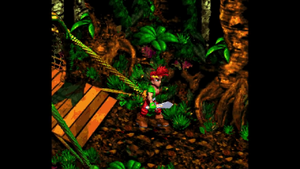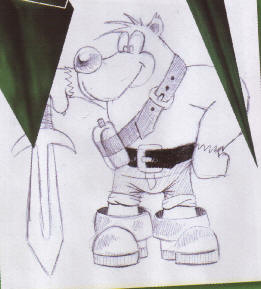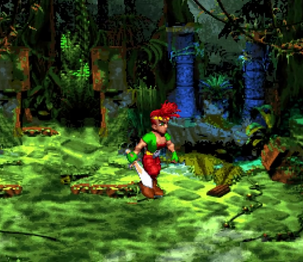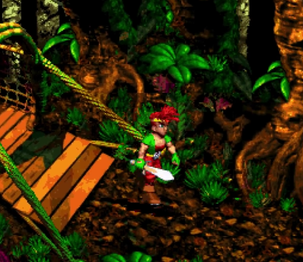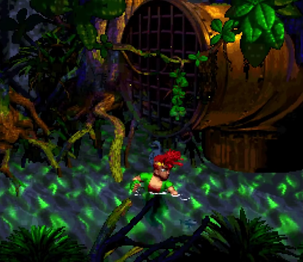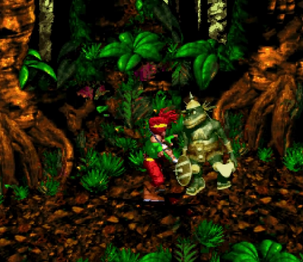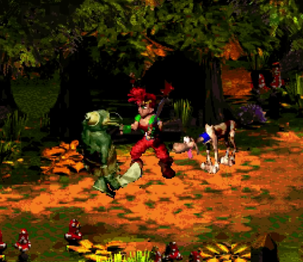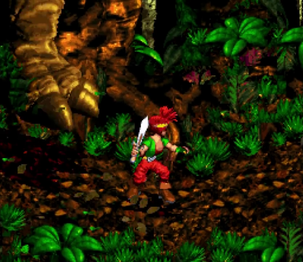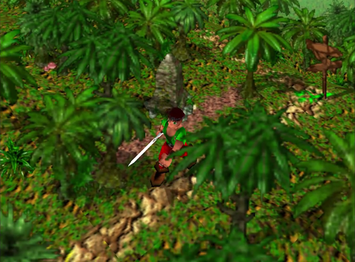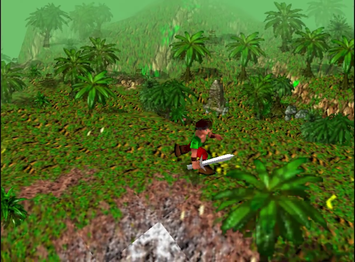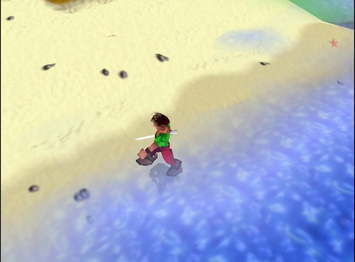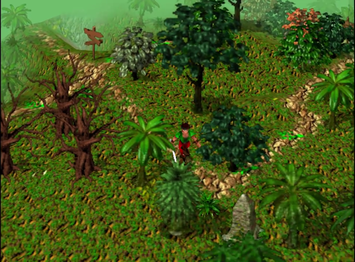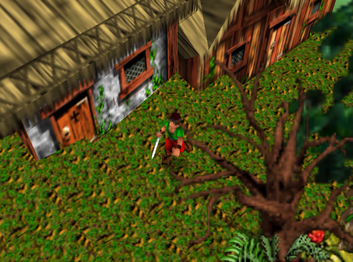Project Dream (lost builds of cancelled Super Nintendo/Nintendo 64 precursor to "Banjo-Kazooie" platformer; 1994-1997)
Project Dream (also known as Dream: Land of Giants) was a cancelled video game created by Rare.
At first, it was developed as a Super Nintendo title in the mid-1990s, until it was rebooted as a Nintendo 64 title.
The original project was meant for it to be an RPG with many features. However, more and more modifications were brought to the development until it eventually became the platform game Banjo-Kazooie.
Plot
The story revolved around a boy named Edson who wielded a wooden sword and travelled with his dog Dinger and his parrot Billy. Edson had caused trouble for a group of pirates. These pirates, the main antagonists of the game, would be led by Captain Blackeye. They wanted to capture Edson because of the aforementioned trouble he caused.
Super Nintendo Version (1994-1995)
Development first started on Project Dream in 1994-1995 (the exact date is unknown). The game would have used the same ACM (Advanced Computer Modeling) technique that was used for Donkey Kong Country in 1994. According to composer Grant Kirkhope, composer of the game (and the eventual Banjo-Kazooie), a demo had already been created when he joined in October 1995. He states that he was "blown away; it looked beautiful and was obviously going to be a big step up from Donkey Kong Country".[1] The demo had a full introduction sequence and a full level.
Eventually, it was decided that the Super Nintendo was not powerful enough for the development team’s vision, so the project was switched over to the Super Nintendo’s successor, the Nintendo 64.
Nintendo 64 Version (1996-1997)
Development on the Nintendo 64 version started on the Nintendo 64 Disk Drive, in which the game would have switched to a 3D RPG game in the same vein as The Legend of Zelda: Ocarina of Time (which was also still in development at the time). This version would have had a unique 3D terrain system, created by stretching out the polygons. The processing power of the Nintendo 64, however, was not enough to render these environments at a steady framerate.
The development team had also taken notice of the second Rare team who was developing Twelve Tales: Conker 64 (a cutesy 3D platformer inspired by Super Mario 64 that would later become the adult-orientated Conker’s Bad Fur Day). From that, the team decided to switch gears to a platformer with RPG elements. It was also noted that the main protagonist Edson was "too generic", so the team looked for a new character, mainly woodland animals for inspiration. They eventually settled on a bear, who was initially a secondary character in the game, and he became the character Banjo.
In the end, the whole project was scrapped, and the team started over with some characters from Project Dream for a new game: Banjo-Kazooie.
Music
Also worth noting is the musical score, composed by Grant Kirkhope. According to him, he composed over 100 tracks for Project Dream. While most of them have not surfaced since the project’s cancellation, some songs are available on his website.[2]
Footage
On December 22nd, 2015, Rare released a video on their YouTube page entitled: "Rare Revealed: A Rare Look at Dream". The video shows, and tells of the development history of Project Dream, including some never before seen gameplay of both the Super Nintendo version, and the Nintendo 64 version of the game, and a very early prototype of Banjo-Kazooie.
Gallery
Screenshots
Super Nintendo Build
Nintendo 64 Build
Footage
Soundtrack
Videos
See Also
Banjo-Kazooie
- Banjo-Karting/Banjo-Kazoomie (lost prototypes of "Banjo-Kazooie" racing games; mid-2000s)
- Banjo-Kazooie (partially found concept art from unproduced animated TV adaptation of game series; 2007)
- Banjo-Threeie (non-existent sequel to platformer game series; early 2000s)
Rare Ltd.
- Cascade (lost build of cancelled Xbox 360 massive multiplayer online game; 2000-2007)
- Diddy Kong Racing Adventure (found build of cancelled Nintendo GameCube sequel to "Diddy Kong Racing"; 2004)
- Dinosaur Planet (found build of cancelled Nintendo 64 action-adventure game; 1999-2000)
- Donkey Kong Country 2: Diddy's Kong Quest (lost build of cancelled Virtual Boy port of Super Nintendo sequel platformer; 1996)
- Donkey Kong: Coconut Crackers (lost build of cancelled Game Boy Advance puzzle game; 2002)
- Donkey Kong Racing (lost build of cancelled Nintendo GameCube racing sequel game; 2002)
- GoldenEye 007 (found build of cancelled Xbox Live Arcade remaster of Nintendo 64 first-person shooter; 2007-2008)
- Jet Force Gemini (lost build of cancelled Game Boy Color port of Nintendo 64 third-person shooter; 2000)
- Sabreman Stampede (lost build of cancelled Xbox 360 adventure platformer; 2002-2005)
- Savannah (lost build of cancelled Xbox 360 Kinect prototype; 2006-2007)
- Twelve Tales: Conker 64 (lost build of early version of "Conker's Bad Fur Day" Nintendo 64 platformer; late 1990s)
External Links
References
- ↑ Unseen64 article on Project Dream. Retrieved 05 Oct '14
- ↑ An archive of Grant Kirkhope's website talking about Project Dream. Retrieved 05 Oct '14
